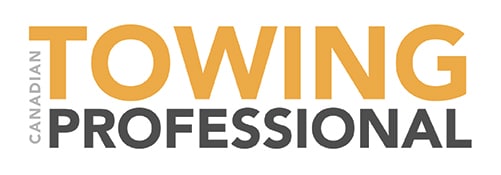Wallace State Community College’s Diesel by Distance program pairs VR simulations with paid apprenticeship to upskill aspiring diesel technicians
HANCEVILLE, Ala.–(BUSINESS WIRE)–Insert after second sentence, seventh paragraph: A portion of the funding for the program was provided by the Department of Labor’s WORC grant in partnership with the Appalachian Regional Commission.
The updated release reads:
NEW VIRTUAL REALITY TRAINING PROGRAM HELPS WORKING ADULTS IN ALABAMA GEAR UP FOR DIESEL TECH JOBS
Wallace State Community College’s Diesel by Distance program pairs VR simulations with paid apprenticeship to upskill aspiring diesel technicians
Wallace State Community College, one of the largest colleges in the Alabama Community College System serving more than 6,000 students, today announced the launch of an ambitious new initiative that will harness the power of virtual reality to train thousands of workers for roles in good-paying diesel tech jobs. Delivered through the college’s popular Diesel by Distance program and built-in collaboration with immersive learning startup TRANSFR, the partnership will expand access to career-relevant training and help thousands of working adults launch careers in the fast-growing industry of diesel technology.
“As we work to help meet Alabama’s statewide workforce goals and get people into the many skilled trades with unfilled jobs, diesel technology is a key industry facing a serious shortage of talent,” said Dr. Vicki Karolewics, president of Wallace State Community College. “Through this next generation approach to technical training, we have an opportunity to meet a pressing need for employers, while getting those in search of work into secure and good-paying jobs. The integration of simulation-based technology into this program is helping to generate new interest in the program and the careers in diesel tech, more broadly.”
Diesel by Distance will now feature hands-on virtual reality simulations that recreate the working environment of a diesel technician or mechanic. In the simulations, developed by TRANSFR, students learn, practice, and master skills that are essential to the construction, manufacture, repair, and maintenance of diesel engine vehicles. Because many employers require these technicians to be certified, the program helps to expand career opportunities for workers interested in pursuing diesel technology careers.
Alabama is one of several states facing a shortage of certified diesel technicians and mechanics qualified to service commercial trucks, buses, and diesel-powered transportation vehicles used for critical functions such as construction, farming, public transportation and emergency services.
To keep pace with new equipment, changing industry standards and a growing percentage of technicians reaching retirement age, the industry will require approximately 200,000 new technicians and mechanics over the next ten years. According to the Bureau for Labor Statistics, employment opportunities in the industry are growing fastest among workers with college-level training. Meanwhile, diesel technology training programs are only producing about 3,500 graduates each year according to data cited by the National Institute for Automotive Service Excellence.
“The trucking and commercial transportation industry keeps our communities safe, healthy, fed and connected, but none of that is possible without the highly trained technicians that keep our fleets on the road,” said Mark Colson, President & CEO, Alabama Trucking Association. “At a time when the need for skilled diesel techs is growing, the Diesel by Distance program will create the pipeline of well-qualified talent that our industry needs. The use of VR has brought the real-world experience of diesel tech into the classroom, ensuring students can be ready to get to work on day one.”
Launched in late 2020, Wallace State’s Diesel by Distance program combines self-paced coursework and fully online training that enables students to earn a certificate or degree in diesel technology. Students enrolled in the program can study from anywhere—even on the road, with live feedback and training from instructors—while they participate in paid apprenticeships that allow them earn while they learn. A portion of the funding for the program was provided by the Department of Labor’s WORC grant in partnership with the Appalachian Regional Commission. Through funding from the National Science Foundation’s Advanced Technological Education (ATE) program, Wallace State will also collaborate with the National Institute for Women in Trades, Technology & Science to recruit and enroll aspiring female technicians, helping them to upskill for good-paying work in an industry where women are significantly underrepresented.
“All skills gaps are local, and what we’ve heard clearly from industry is the need to augment traditional classroom instruction with the first-hand work experience that so often only on-the-job training can offer,” said Bharani Rajakumar, founder and CEO of TRANSFR. “As a true partnership between educators and industry leaders, Diesel by Distance has bridged the gap between work-based learning and classroom instruction, accelerating pathways to good-paying jobs for thousands of workers.”
Through a partnership with the Alabama Trucking Association and a network of other diesel trucking and automotive employers in the states, students will receive job placement assistance, ensuring that graduates can smoothly transition directly into good-paying diesel tech jobs after completing their training.
For more information about the Diesel by Distance program, contact Jeremy Smith, WSCC Diesel Program 256.352.8063 or jeremy.smith@wallacestate.edu or visit wallacestate.edu/dieselbydistance.
About Wallace State Community College: Wallace State Community College, with its main campus in Hanceville and a satellite campus in Oneonta, is a part of a system that serves the needs of more than 300,000 individuals and has been conservatively estimated to produce a $3 billion annual economic impact on this state and in our communities. The real impact, however, is in improving the lives of students through education.
Since opening our doors in 1966, Wallace State has served hundreds of thousands of students. From the very beginning, Wallace State embraced a commitment to excellence that has become not only a tradition but our source of inspiration. Today Wallace State is one of the largest colleges in the Alabama Community College System, serving more than 6,000 students each semester. This college is a virtual powerhouse in educational programming, with more than 100 programs of study leading to degree, certificate and transfer opportunities.
About TRANSFR: TRANSFR is a workforce development platform that uses simulation-based training to give students and job-seekers the hands-on skills they need to get well-paying jobs. Together with community leaders, workforce development organizations, educational institutions, and business and industry, we are building a classroom-to-career pipeline to raise up people, the organizations where they learn and work, and the communities that they call home.
TRANSFR’s hands-on simulations provide an immersive learning environment that gives students and job seekers the real-world experience they need to choose a career path and then get trained to perform it. Guided by a digital coach, they receive expert, personal instruction that introduces them to different careers, teaches them how to perform essential tasks, gives feedback based on their specific actions, and assesses progress toward mastery of skills in real time. Those who have partnered with TRANSFR have used the training to help job seekers understand their career options, develop more skilled workers, place more people in jobs, and see improved job retention rates. For more information, visit transfrvr.com.
Contacts
Ben Watsky
press@transfrvr.com











